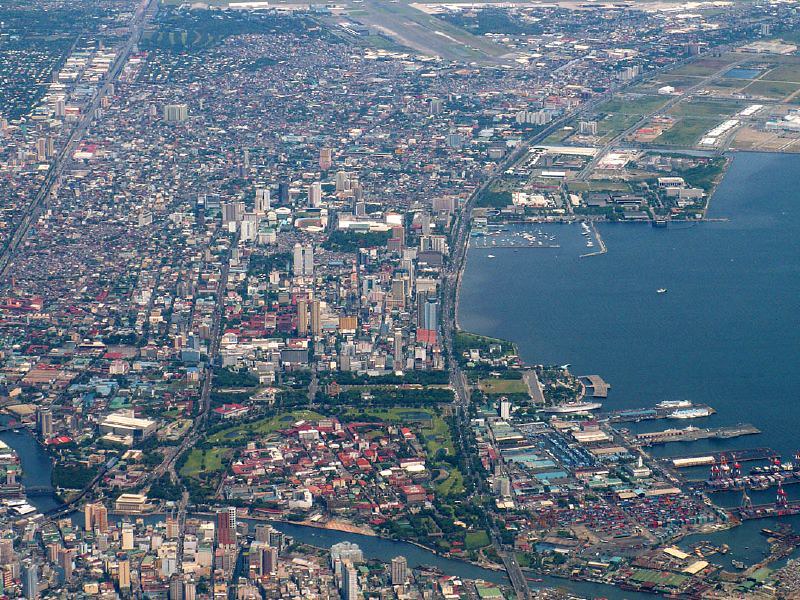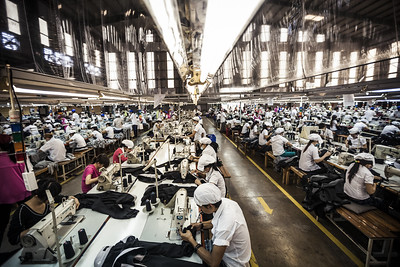1. Vietnam: adding value from assembler to innovator
The largest foreign companies operating in Vietnam today include:
- Unilever: Unilever has invested over USD 300 million to build a modern manufacturing plant in Ho Chi Minh City and Bac Ninh Province. With an annual growth rate higher than the market average, Unilever Vietnam has become one of the most successful foreign investors in Vietnam. Many Unilever brands such as OMO, P/S, Clear, Pond’s, Knorr, Lifebuoy, Sunsilk, VIM, Lipton, Sunlight, VISO, Rexona, etc. have become household names to Vietnamese people.
- Procter & Gamble (P&G): P&G Vietnam was established in 1995, and it has made a significant contribution to the development of Vietnam through investing in technology and building modern factories. Over 20 years of operation in Vietnam, P&G has grown strongly. With professional staff, P&G Vietnam is considered one of the fastest growing branches of the P&G Group.
- IBM: IBM was one of the first companies to return to Vietnam and opened a representative office in 1994, shortly after the US lifted its economic embargo against Vietnam. IBM Vietnam provides a wide range of IT solutions and services to help clients in various industries to innovate and transform their businesses.
- Microsoft: Microsoft Vietnam currently has 100 employees. General Director of Microsoft Vietnam is Mr. Pham The Truong. Microsoft Vietnam provides a wide range of software products and services to help clients in various industries to innovate and transform their businesses.
- Pepsico Foods: Pepsico Foods Vietnam is a subsidiary of Pepsico Inc. and has been operating in Vietnam since 1994. Pepsico Foods Vietnam is one of the leading food and beverage companies in Vietnam, with a wide range of products such as Pepsi, 7Up, Mirinda, Aquafina, Lipton, Sting, Tropicana, etc..
Vietnam has been making strides in innovation in recent years. However, it is true that Vietnam’s economy has been heavily reliant on assembling parts for foreign companies. According to a report by the Vietnam Briefing, Vietnam currently only assembles simple parts and does simple production processing. When it comes to the production of components or specialized devices, Vietnam is yet to acquire the necessary resources and skilled labour force.
However, Vietnam is taking steps to address this issue. The Vietnamese government has been implementing policies to encourage innovation and entrepreneurship. For example, the government has established the National Technology Innovation Fund (NATIF) to support research and development activities in the country.
Furthermore, Vietnam has been attracting foreign investment in high-tech industries such as electronics and semiconductors. For instance, Samsung has invested billions of dollars in Vietnam to build a high-tech complex in Thai Nguyen province. The complex produces smartphones, tablets, and other electronic devices.
In conclusion, while Vietnam has been an assembler of parts for foreign companies, it is taking steps to enhance its innovation capabilities and move up the global value chain.Enhancing national competitiveness and capacity of domestic enterprises is vital for Vietnam to climb up the global value chain in the new context of globalization. According to a workshop held by the Vietnam Institute for Economic and Policy Research (VEPR), there are several complexities that Vietnam faces in this regard:
- Lack of innovation: Domestic enterprises remain weak in their capacity to embrace innovation, promote research and development, technology application, and financial capacity.
- Quality of human resources: The quality of human resources is also a problem, besides weakness in governance capacity.
- Low added value: Vietnam’s exports mainly focus on labour-intensive industries with low added value. The country’s imports of inputs also have low added value and weak technology diffusion.
- Barriers: Barriers come from problems in the macro-level competitiveness, internal capacity of domestic enterprises, as well as the lack of efficiency and consistency of policies.
Vietnam needs to enhance its national competitiveness and capacity of domestic enterprises to climb up the global value chain. The abundant foreign direct investment (FDI) capital has given Vietnam a new image on the global trade map but has not been able to pull the economy up a higher value ladder.
2. Dubai International Chamber opens Nigeria office

H.E. Babajide Olusola Sanwo-Olu, Governor of Lagos State (4th from left), and H.E. Mohammad Ali Rashed Lootah, President and CEO of Dubai Chambers (5th from left), during the inauguration ceremony for Dubai International Chamber’s new representative office in Nigeria. (Photo: AETOSWire)
H.E. Babajide Olusola Sanwo-Olu, Governor of Lagos State (4th from left), and H.E. Mohammad Ali Rashed Lootah, President and CEO of Dubai Chambers (5th from left), during the inauguration ceremony for Dubai International Chamber’s new representative office in Nigeria. (Photo: AETOSWire)
Dubai International Chamber (DIC) has been expanding its global presence by opening representative offices in various countries. In June 2023, DIC inaugurated its first European representative office in London, United Kingdom. The new office will focus on strengthening relationships with key public and private sector stakeholders, as well as supporting UK companies that are seeking to relocate to or expand into Dubai and grow their business internationally through the emirate.
DIC is one of the three chambers operating under Dubai Chambers and aims to establish a powerful network of 50 representative offices around the world by 2030 through its Dubai Global initiative. DIC’s new offices in Egypt, Israel, and Turkey are part of this initiative.
DIC has recently inaugurated its newest international representative office in Frankfurt, Germany. The office is strategically located in Frankfurt, the financial capital of the Eurozone, and is DIC’s fifth in Europe and 26th worldwide. The new representative office will strengthen the emirate’s robust economic relationship with Germany and facilitate the growth of bilateral business, trade, and investments.
Dubai International Chamber, one of the three chambers operating under the umbrella of Dubai Chambers, has inaugurated its seventh representative office on the African continent in Nigeria. Located in Lagos, the chamber’s 28th international office worldwide will further strengthen the economic and trade ties between Dubai and Africa.
Dubai recently completed an East Africa roadshow that included 19 Dubai companies visiting Rwanda and Kenya. The trade mission hosted 400 business meetings and 300 attendees to forum events.
3. 2024 USDA trade missions

USDA
The United States Department of Agriculture (USDA) has announced its planned trade missions for 2024, which will help to build on two record years for U.S. agricultural exports ¹. The USDA will lead trade missions to the following markets in 2024:
- Seoul, Korea – Week of March 25, 2024
- New Delhi, India – Week of April 22, 2024
- Vancouver, Canada – Week of June 17, 2024
- Bogota, Colombia – Week of July 29, 2024
- Hanoi and Ho Chi Minh City, Vietnam (with buyers from Thailand) – Week of September 9, 2024
These trade missions will help to support further growth in U.S. agricultural exports and introduce high-quality U.S. agricultural products to new markets.
The USDA has also announced the opening of a public comment period for the new Regional Agricultural Promotion Program (RAPP), which will help to bolster and diversify U.S. agricultural export opportunities, and strengthen support for specialty crop industries.
4. Philippines South Korea FTA

Seaside Manila by StormCrypt
The Philippines and South Korea have signed a free trade agreement (FTA) on the sidelines of the 43rd Association of Southeast Asian Nations (ASEAN) Summit and Related Summits in Jakarta, Indonesia. The agreement aims to boost bilateral trade by removing tariffs on most products.
The FTA is a milestone for enhanced partnership between the Philippines and South Korea. Speaking to South Korean President Yoon Suk Yeol at the sidelines of the summit, President Ferdinand R. Marcos Jr. said that the agreement will further enhance the vibrant relationship between the Philippines and South Korea.
The Philippines and South Korea have concluded negotiations paving the way for bilateral free trade agreement (FTA) that would further liberalize trade in goods between the two countries, including gradual elimination of tariffs on Philippine bananas and canned pineapple exports and exports of Korean automobiles and autoparts.
Featured image Ando International garment factory (Better Work Vietnam) by ILO Asia Pacific







